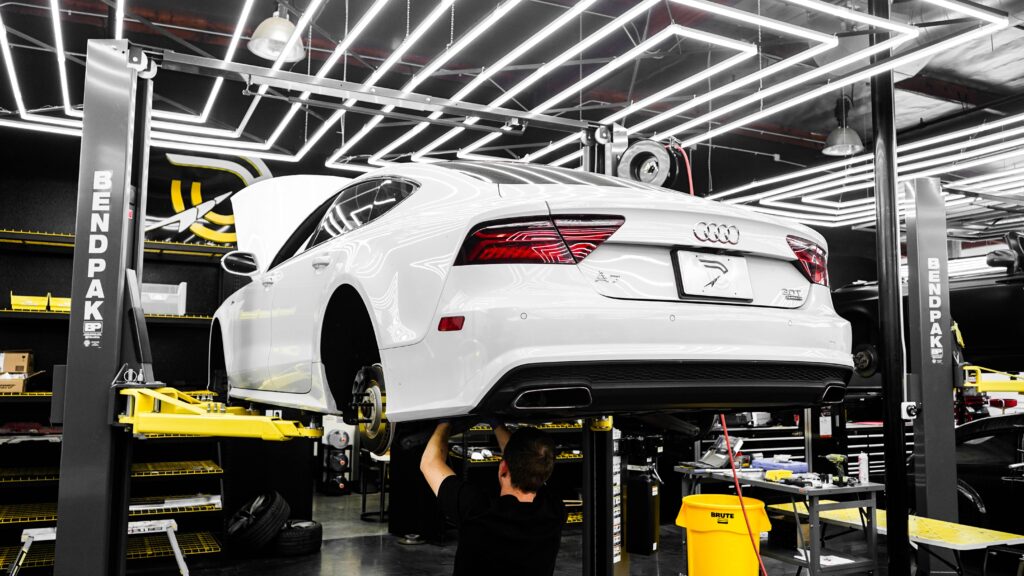
Every year, thousands of American consumers through no fault of their own purchase defective vehicles. These vehicles contain repeating, unfixable problems. Colloquially, these vehicles are known as “lemons” or “lemon cars.” The National Highway Traffic Safety Administration (NHTSA) estimates consumers inadvertently purchase 150,000 of these “lemon” vehicles every year. The problems that make a vehicle a “lemon” can be caused by any number of issues. These issues can range from design flaws, substandard materials, manufacturing errors or simple human mistakes at the factory. Regardless of the cause, the result is the same: a defective lemon vehicle.
Every manufacturer has made lemons. Neither Ford nor Honda nor General Motors or any other manufacturer has a spotless record; all are subject to slip-ups in the design or manufacturing process. What the manufacturer may consider a mere blip on the radar can cost the owner thousands of dollars in unforeseen costs including lost work hours, alternative transportation costs, towing fees and other costs that can spring up when their vehicle goes in the shop.
However, consumers have options open to them when their vehicle turns out bad. Auto manufacturers include written warranties with new vehicles, stating within a certain period they will cover any repair needed resulting from a manufacturing defect. Written warranties are, in simple terms, the manufacturer promising they will fix any problem you find with the car not caused by the owner’s abuse or neglect. Warranties spell out what problems they will fix and how long a consumer can pursue a repair. This means any defect found in the vehicle is the manufacturer’s responsibility to repair.
When manufacturers fail to hold up their end of the bargain, state and federal lemon laws can compel them to do the right thing and make the consumer whole again. Lemon laws give consumers and their attorneys the tools they need to fight and win against their lemon car’s manufacturer in court.
For more information on arbitration and other frequently asked lemon law claim questions, click here.
Lemon laws almost always exclusively cover new vehicles; those sold within the protection period of the original factory warranty. Lemon laws also cover vehicles whose problems did not arise as a result of abuse or neglect. For example, a vehicle containing an engine problem caused by faulty components or an error at the factory, that vehicle is covered. If the engine problem is caused by the owner never changing the oil, that vehicle would not be covered.
Following a successful lemon law claim, consumers typically have two options: repurchase or replacement. Replacement is exactly what it sounds like: the manufacturer provides a vehicle as similar as possible to the original, defective one. The manufacturer must provide a “comparable” vehicle, meaning one of the same make and model as the defective vehicle. Just as in the case of a buyback, the manufacturer can also withhold a certain amount of money paid according to the use of the defective vehicle.
The consumer can also choose repurchase, or buyback. This is when the manufacturer agrees to refund you the money spent on your defective vehicle. Buyback is one of the faster methods of getting compensation, since they simply cut you a check for the full price of the vehicle including sales taxes, title registration and other fees. Most state laws also require the manufacturer reimburse you for incidental costs you encountered because of the vehicle’s defects, including rental car fees, towing costs, phone or mail communications made when contacting the dealership or manufacturer, personal property damage, attorney’s fees if the consumer hires an attorney after learning the manufacturer has also hired an attorney, and even room and board if the vehicle fails while on an out-of-town trip.
Think you have a lemon, click here to fill out a 30 second form.
Buybacks come with a caveat, however. Manufacturers can withhold reasonable allowances for the consumer’s use of the vehicle” depending on how much the consumer drove the vehicle before the defect put the vehicle in the shop. Put simply, the more you drove the vehicle before finding the defect, the less the manufacturer has to pay when buying the vehicle back from you.
Allen Stewart P.C. has a long history of successfully representing lemon law clients in and out of the courtroom. Whether the claim goes to trial or the manufacturer opts to settle beforehand, our clients are often satisfied with the outcome.
Allen Stewart P.C.’s Google reviews speak for themselves.
“After having my BMW in the shop over 7 times for the same issue, I reached out to Allen Stewart, PC,” said Todd R. “They ended up getting my issue resolved and I was very happy with the outcome. Thanks again.”
Karina D. wrote about problems with her Volkswagen that lead to seeking out an attorney, and how she chose Allen Stewart P.C. after researching firms online.
“I contacted them and from that point on the entire process was beyond my expectations and as smooth as can be,” Karina said. “They handled my entire case with such professionalism, they always kept me updated I never needed to call them they were always in contact with me every step of the way. Everything was resolved within 90 days and I couldn’t be happier with the outcome.”
Each state has its own lemon law, with variations on how long a consumer must pursue a claim and how long a vehicle must be out of service before a claim can commence. Additionally, consumers across the country are protected by the Magnuson-Moss Warranty Act, a federal law protecting all Americans.
The Magnuson-Moss Warranty Act requires companies to designate any warranties they offer as either “full” or “limited” and specify exactly what they cover in a single, clear, easy-to-read document. They must also make the warranty conspicuously available for consumer review, allowing consumers to shop for warranty coverage before making a purchase.
Lemon laws are confusing. Read our guide to the lemon law complaint process.
Magnuson-Moss makes companies distinguish clearly the difference between “full” and “limited” warranties, and mandates those companies remedy any problems covered by the warranty within a reasonable time. The warrantor can’t limit the products implied warranty or limit consequential damages for breaching that warranty unless that exclusion appears clearly in the warranty’s text.
The Act empowers consumers, giving them tools they need to face companies in court when they don’t stand by their warranties. Consumers can pursue their claims in court, such as lemon law claims, and take their attorney’s fees from the company if they win.
Lemon laws, like every other law, are governed by statutes of limitations. Statutes of limitations grant deadlines for initiating legal proceedings. This is why lemon law attorneys often tell you to “call now” or “reach out today,” as past a certain point they can no longer help you. In Texas, that time period is six months following whichever occurs earlier: the warranty’s expiration, 24 months after the purchase, or 24,000 miles driven on the vehicle in question after its date of delivery.
Once the proscribed time period expires, a claim cannot be filed or would be dismissed on statutory grounds. United States law has statutes of limitations for both civil and criminal claims, though particularly serious criminal claims have no statutes of limitations. The statute lengths can also vary from state to state for their lemon laws, which can also differ from the statutes for federal laws.
The sooner you reach out to Allen Stewart P.C., the better chance your claim has to reach a satisfactory conclusion. The lemon law attorneys of Allen Stewart P.C. will work with you to determine if you have a valid lemon law claim and the best next steps to take. They will work with you and keep you informed on your claim’s status and get you the best possible compensation. Don’t wait; contact Allen Stewart P.C. today and get back on the road.

